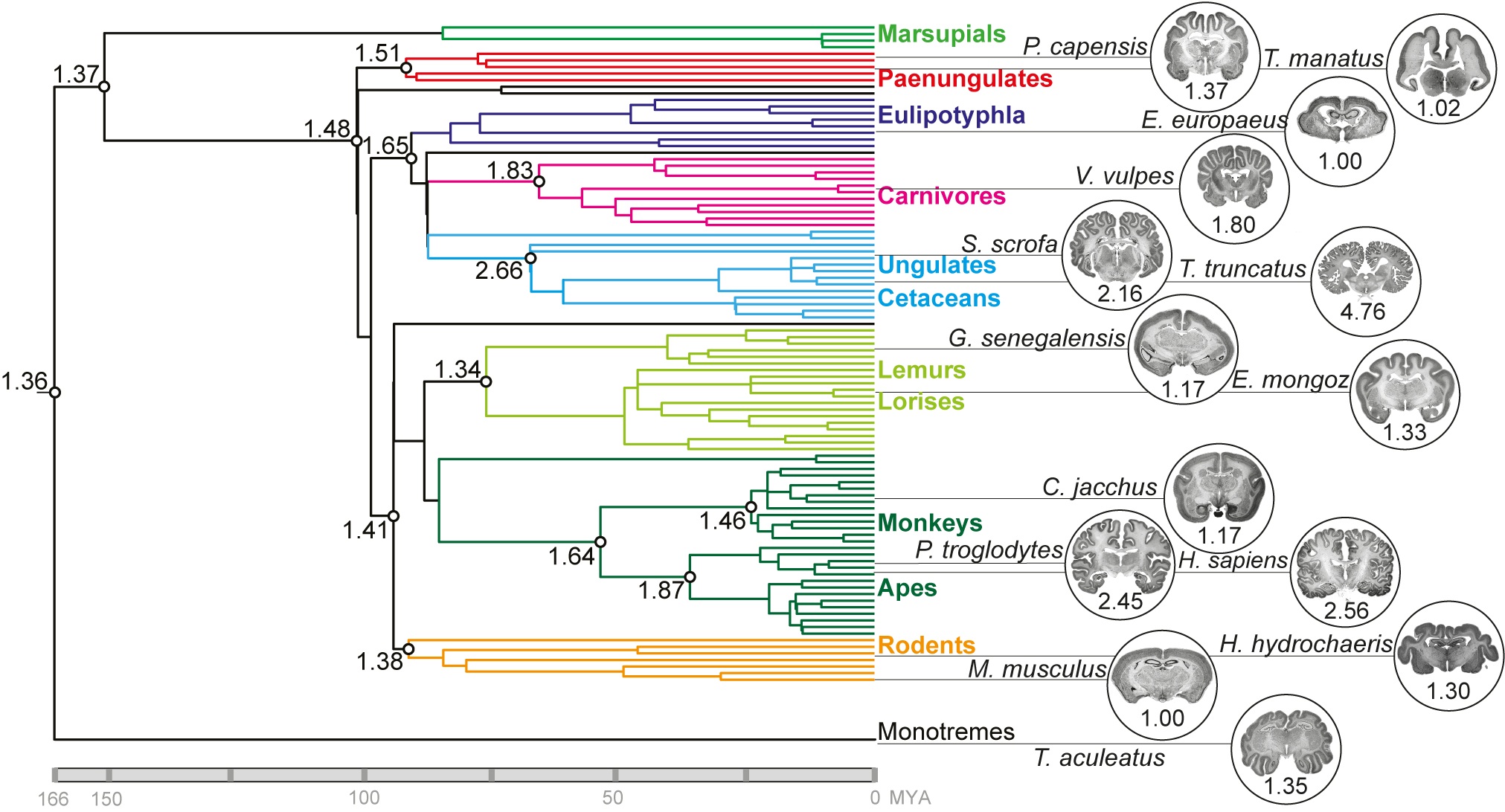This week in PLOS Biology
In PLOS Biology this week, you can read about brain folding in mammals, misfolded proteins in human genetic disease, and mechano-transduction.
Evolution of the Mammalian Cortex – Folded or Unfolded?
The neocortex of the brain is highly expanded in humans, and is involved in high-level functions such as language and conscious thought. However the adaptive mechanism that evolved along certain mammalian lineages to produce a large and folded neocortex has not been clear. In a study published this week, Wieland Huttner, Iva Kelava, Eric Lewitus and colleagues found that mammals fall into two principal groups associated with distinct ecological niches: those with less folding (such as mice and tarsiers) and more folding (such as dolphins and humans). It seems that a highly folded neocortex requires a specific class of progenitor cell-type to adopt a special mode of cell division, and that folding is in fact the ancestral state for mammals. Read more in the accompanying synopsis.
When Stress Management Becomes the Problem
The function of all proteins in our bodies is dependent on their correct folding. Therefore emergency systems exist to manage protein folding if something goes wrong. But what happens if levels of misfolded proteins are always high, as in the case of some genetic diseases, such as cystic fibrosis, where mutations disrupt folding? A new research article by Daniela Martino Roth, William Balch, and colleagues, suggests that chronic activation of the stress response can be detrimental, exacerbating the disease phenotype. They call this effect a ‘maladaptive stress response’. Their provocative message is that we should ask ourselves if stress responses can sometimes be part of the problem, as well as being helpful in acute situations. Read more in the accompanying synopsis.

Mechano-Transduction: From Molecules to Tissues
All cells and tissues of the body are subject to external forces, such as fluid shear stress, osmotic forces and stretch. Changes in these forces, or how cells respond to them, can result in abnormal embryonic development and diseases in adults. In this new essay, Beth Pruitt, James Nelson and colleagues discuss mechano-transduction – the cellular process that converts a mechanical input, for example stretching, into intracellular signal transduction – as it applies to protein conformation, cellular organization, and multi-cellular tissue function.

